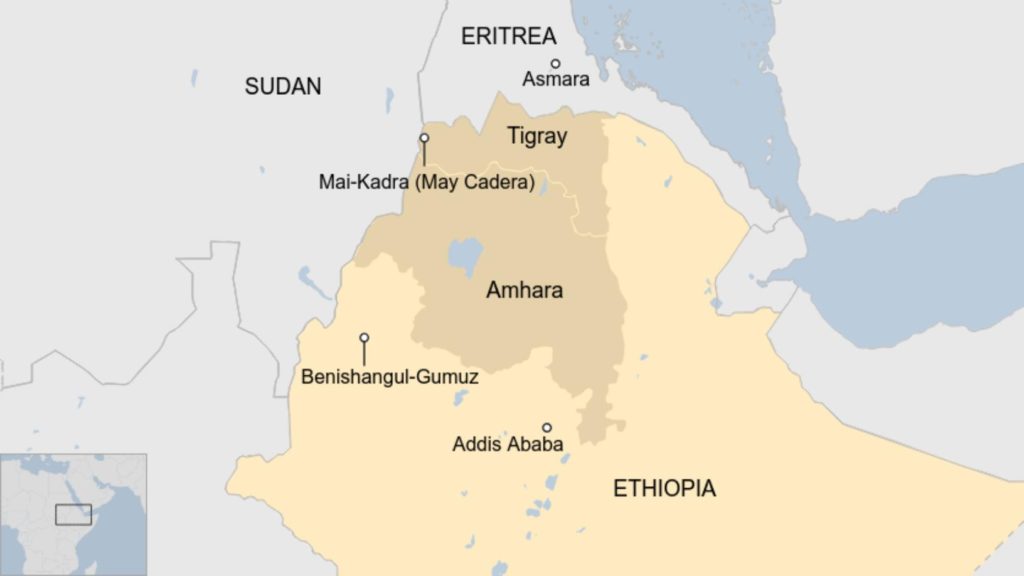Ethiopia’s government ratcheted up economic pressure on the rebel Tigray state in a bid to cow it into submission after two weeks of fighting that’s triggered a humanitarian crisis in Africa’s second-most populous nation, Bloomberg reported.
The Attorney General’s Office said it’s frozen the bank accounts of 34 subsidiaries of the Endowment Fund for the Rehabilitation of Tigray, which is administered by the region’s ruling Tigray People’s Liberation Front.
The authorities acted because the companies are allegedly “participating in financing ethnic-based violence, acts of terrorism, connection with the TPLF, which seeks to overthrow the constitutional order,” the office said in a statement on Facebook.
The clampdown on the fund, known as EFFORT, follows conflict in which hundreds of people have died and tens of thousands have been forced to flee their homes. Ethiopian army forces began an incursion on Nov. 4, after months of tension between the federal and regional governments.
Last month, Ethiopia’s government froze budget subsidies to Tigray’s government and said it would instead allocate the funds directly to local authorities. The region had been set to receive 10.4 billion birr ($272 million) from the government this fiscal year.
Founded in 1995 with assets acquired during a 17-year armed rebellion, EFFORT controls some of Ethiopia’s biggest businesses. It has interests in at least 13 companies involved in food production — the mainstay of Tigray’s economy — construction, pharmaceutical manufacturing and mining.
Tigray President Debretsion Gebremichael slammed the attorney general’s announcement.
“It is an act of daytime robbery on Tigray’s interests,” he said by mobile-phone text message. “This is part of their plan to damage and weaken the economy of Tigray.”
Ethiopia’s $107 billion economy expanded more than 9% a year over the past decade as investment flooded in, making it one of the world’s top performers. Prior to the hostilities, the International Monetary Fund forecast that the fallout from the coronavirus would slow to 1.9% this year — a projection that’s likely to prove overly optimistic.
